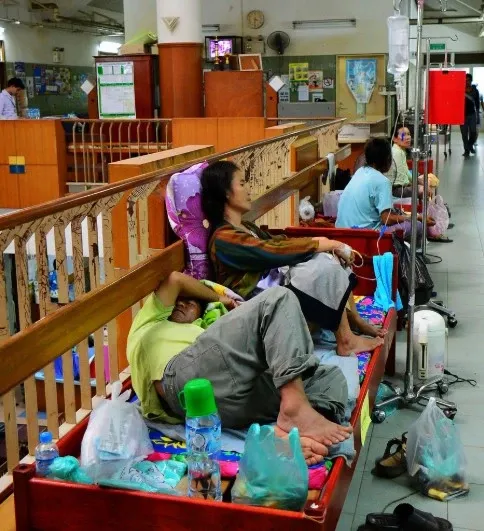Should Laos Remain Vigilant as Dengue Threat Increases with Ongoing Rain?

Synopsis
Key Takeaways
- Stay vigilant during the rainy season to prevent dengue.
- Participate in local clean-up efforts to eliminate mosquito breeding grounds.
- Implement household measures to reduce the risk of dengue.
- Work together as a community to combat the spread of dengue fever.
- Educate others about the importance of dengue prevention.
Vientiane, July 27 (NationPress) As the rains continue to pour across Laos, health officials are urging citizens to stay vigilant and implement preventive strategies against dengue fever.
Despite a notable decrease in reported dengue cases, health authorities caution that the threat remains elevated during the rainy season. They encourage the public to engage in local clean-up initiatives and adopt preventive measures at home to halt the spread of this illness.
To enhance dengue prevention, local leaders in various communities have arranged collective clean-up activities that bring together officials and residents to eradicate mosquito breeding grounds near their living spaces.
Mithouna, a resident of Vientiane, is actively involved in these community efforts, as reported by Xinhua news agency.
"My neighbors and I ensure that we clean our homes and surroundings at least weekly. It's essential for everyone to collaborate in minimizing the risk of dengue fever, particularly during this continuous rainy period," Mithouna shared with Xinhua on Sunday.
She highlighted that dengue impacts whole communities rather than just individuals. "Dengue is a serious illness, and it doesn't target just one household. This is why I believe that we all need to be vigilant and take responsibility," she emphasized.
Chanxay underscored the significance of disease prevention, especially during this time of persistent rainfall when many children are home on summer vacation.
"The rain is unending, and there are puddles everywhere. Additionally, with children out of school, this becomes a particularly perilous time for us," Chanxay remarked. "As parents, we must exercise extra caution now more than ever."
As of July 21, Laos has documented 4,308 instances of dengue fever, including one fatality. The highest concentration of cases was reported in the country's capital, Vientiane, with 2,052 infections, according to the Ministry of Health.
Health authorities advocate five effective dengue control strategies for households: sealing unused containers, emptying water vessels, introducing guppy fish into jars to consume mosquito larvae, maintaining cleanliness around homes, and performing these tasks consistently on a weekly basis.










